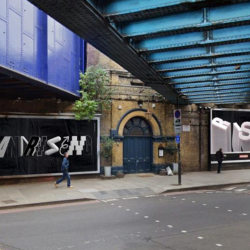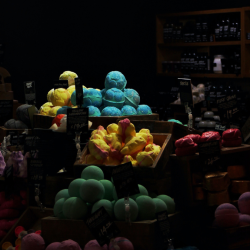When it comes to browsing online, we’re all used to the little pop-ups that appear as soon as you enter a site, seemingly blocking entry and making things feel unnecessarily difficult
But what about this same concept applied to ecommerce? The innocent-looking pop-ups that appear when you’re looking at a dress you’ve been coveting, stating ‘only 2 left!’ or ‘hurry, selling fast!’. While positioned by retailers to look like a helpful virtual assistant — it is actually a dark ploy to get us to buy with urgency.
Why does this matter? Aside from creating a rushed, uneasy and frenzied shopping experience for the user, there are other issues at play here: brand transparency, honesty, and customer trust. When brands are constantly trying to coerce customers into an online purchase by either up-selling a service, or by playing on negative emotion, customers must begin to question their honesty. A classic example of this is seen in the budget airline industry.
Take for instance, when you go to purchase a flight, and you see it advertised for a certain, lower than average amount. Upon checkout you realise you have to pay an extra eighteen pounds to simply reserve a seat, another twenty two pounds to get your hand luggage on board, and another thirty for priority boarding — because of course, you definitely need this service! This type of misleading tactic in online shopping experiences is an case of the term coined ‘dark UX’ — the type of dishonest targeting to create a sense of urgency, potential of missing out, and essentially just generates more money, fast, for the companies guilty of doing it.
If we delve under the surface it becomes clear that companies are actually playing on the customers wanting to avoid experiencing negative emotions; in order to turn around fast sales. How to avoid the disappointment of not having that coveted item? Buy it quick, now. Want to avoid a tiring queue at the airport? Buy priority, now. Want to skip the horror of your hand luggage not fitting the size restrictions? That’s okay — you can buy more, now! These online tactics are dishonest and twisted.
However, this short-term monetary conversion is just that — short-lived
This is because with this ‘hidden cost’ user trust is lost. After realising they’ve been initially misled, users are less likely to return to that service or website again, resulting in less customer loyalty and, in turn, a diminishing brand perception — because customers always end up feeling like they’re getting cheated. So then, what can brands do to ensure they provide a positive user experience online and how can they create long term customer retention and positive brand perception? A good place to start would be to be transparent and upfront about all costs.
Customers would rather know what they’re signing up for at the start, than be stung with a larger total than expected at the checkout. Second, don’t use urgency tactics that pressure users with dishonest messages about how fast an item is selling — these are often not based on truth. Instead of pushing customers into hurried purchases by using pop-ups to instil a sense of urgency, brands should consider how they can create a positive online experience. Brands must harness transparency and strong values at the core of their sales strategy to provide a high quality service. This type of experience online is what will ensure that customers come back again.
It’s clear that there is a danger in going to the dark side. The primary being that when presented with misleading content, customers can — and usually will — switch off. If deception is a deterrent, the obvious answer is to invest in long-term, sustainable methods that build customer loyalty. After all, maximising lifetime value will always beat that single sale.
In short, brands will do well to remember — nothing good ever comes fast.
Featured image: I.am_nah / Unsplash































